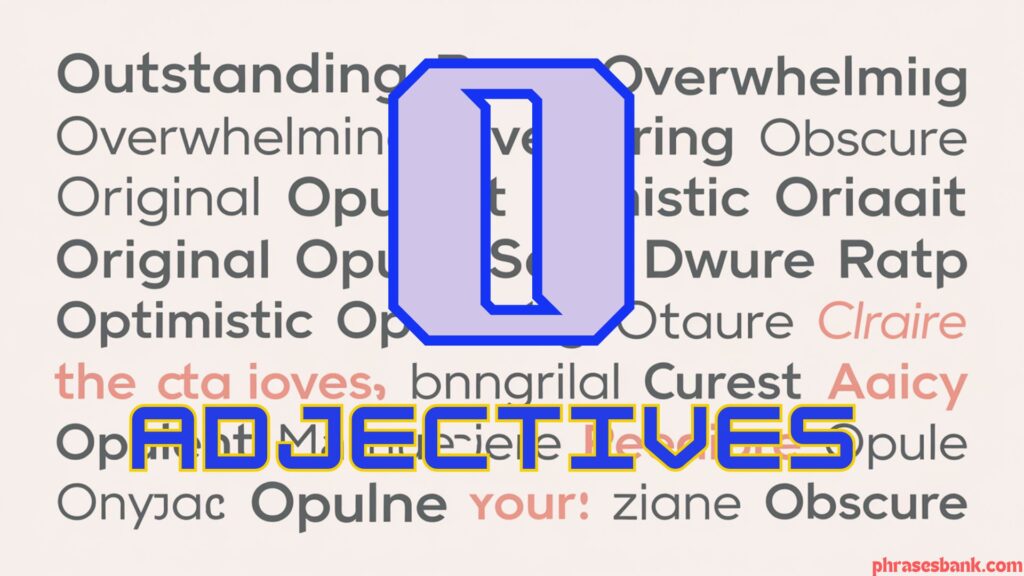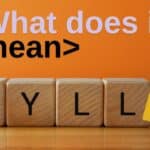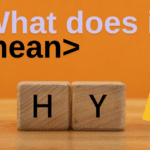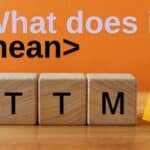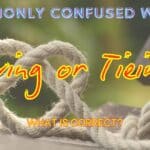In the vast landscape of the English language, adjectives starting with the letter O offer a treasure trove of expressive vocabulary. From optimistic words that brighten our day to detailed descriptors that paint vivid pictures, these O-initial words are essential tools for anyone looking to enhance their language skills or simply enjoy the richness of English. This comprehensive guide will take you on a journey through the world of O adjectives, providing you with the knowledge and inspiration to use these words effectively in your writing and speech.
The Power of O: Why O Adjectives Pack a Punch
When it comes to descriptive words, that start with letter O have a unique charm. They often carry a weight of originality, offering a fresh perspective in our communication. The letter O itself is visually striking, and words that start with it tend to command attention. This makes O adjectives particularly useful for writers, speakers, and anyone looking to make their language more impactful.
How Mastering O Adjectives Can Elevate Your Writing
Incorporating a variety of O adjectives into your vocabulary can significantly enhance your writing and speaking skills. Here’s why:
- Precision: Many O adjectives offer specific meanings that can help you describe things more accurately.
- Originality: Using less common O adjectives can make your writing stand out.
- Emotional Impact: From “overjoyed” to “outraged,” O adjectives cover a wide range of emotions.
- Descriptive Power: O adjectives like “opalescent” or “ostentatious” can create vivid imagery.
By expanding your repertoire of O adjectives, you’re not just learning new words; you’re opening up new possibilities for expression and enhancing your overall English language learning experience.
The ABCs of O: Understanding Adjective Types
Before we dive into our extensive list of O adjectives, let’s break down the different types you’ll encounter. This knowledge will help you use these words more effectively in your communication.
Descriptive vs. Attributive O-adjectives
- Descriptive O-adjectives describe a noun’s qualities or state. Example: “The ocean was opaque after the storm.”
- Attributive O-adjectives are used before a noun to modify it directly. Example: “He wore an orange shirt.”
Common vs. Proper O-adjectives
- Common O-adjectives describe general qualities. Example: “She has an optimistic outlook on life.”
- Proper O-adjectives are derived from proper nouns. Example: “She enjoyed Orwellian literature.”
Gradable vs. Non-gradable O-adjectives
- Gradable O-adjectives can be used in comparative and superlative forms. Example: “This painting is more ornate than that one.”
- Non-gradable O-adjectives represent absolute states. Example: “The answer is either optimal or not.”
Understanding these distinctions will help you use O adjectives more precisely and effectively in your communication.

30 Positive Adjectives That Start With O: Brightening Your Day
Positive adjectives are essential tools for expressing optimism, appreciation, and encouragement. They help create an uplifting atmosphere in both written and spoken communication. Here’s a list of 30 positive O adjectives to add some sunshine to your vocabulary:
- Optimistic: Hopeful and confident about the future.
- Outstanding: Exceptional, excellent, or superior.
- Overjoyed: Extremely happy and delighted.
- Opportune: Suitable, favorable, or timely.
- Open-minded: Receptive to new ideas and opinions.
- Outgoing: Sociable and friendly.
- Opulent: Luxurious, rich, and extravagant.
- Obliging: Willing to help or do favors.
- Observant: Quick to notice things.
- Organized: Methodical and systematic.
- Original: New, unique, or creative.
- Optimum: The best or most favorable.
- Orderly: Arranged in a neat and systematic way.
- Outspoken: Frank and direct in expressing opinions.
- Olfactory: Relating to the sense of smell.
- Olympian: Relating to or resembling the ancient Greek gods.
- Oneiric: Relating to dreams or dreaming.
- Omniscient: Having unlimited knowledge.
- Operatic: Relating to or characteristic of opera.
- Orchestral: Relating to or performed by an orchestra.
- Ostentatious: Showy and pretentious.
- Outlandish: Bizarre, eccentric, or unusual.
- Ornamental: Decorative, but not necessarily functional.
- Orthographic: Relating to spelling.
- Opalescent: Having a play of colors like an opal.
- Otherworldly: Supernatural, unearthly, or mysterious.
- Otiose: Idle, lazy, or inactive.
- Overachieving: Exceeding expectations or goals.
- Ornate: Elaborately decorated.
- Overpowering: Very strong or intense.
These positive describing words can be used to express a range of uplifting concepts, from personal qualities to aesthetic attributes. For example, describing someone as “open-minded” highlights their receptiveness to new ideas, while calling a performance “outstanding” emphasizes its exceptional quality.
You might also like: 100+ Adjectives That Start with Y
30 Negative Adjectives Starting With O: Handle with Care
While it’s important to focus on the positive, having a grasp of negative adjectives is equally crucial for balanced communication. These words can help express criticism, caution, or dissatisfaction when necessary. Here’s a list of 30 negative O adjectives:
- Obnoxious: Extremely unpleasant or irritating.
- Obstinate: Stubbornly refusing to change one’s opinion or course of action.
- Offensive: Causing offense or annoyance.
- Oppressive: Cruel and unjust, especially in the exercise of power.
- Odious: Extremely unpleasant or hateful.
- Obsolete: No longer in use or out of date.
- Ominous: Giving a feeling of danger or evil.
- Obstructive: Causing obstruction or delay.
- Outrageous: Shockingly bad or extreme.
- Oblivious: Unaware or unmindful.
- Overbearing: Domineering and arrogant.
- Obtuse: Slow to understand or lacking intelligence.
- Ostentatious: Showy and pretentious.
- Overrated: Considered to be better than it actually is.
- Obsessive: Having an extreme preoccupation with something.
- Off-putting: Unpleasant or unattractive.
- Onerous: Difficult to deal with or requiring much effort.
- Outmoded: Old-fashioned and no longer in use.
- Overblown: Exaggerated or overemphasized.
- Opinionated: Having strong opinions and not easily persuaded.
- Obdurate: Stubbornly refusing to change one’s mind.
- Otiose: Idle, lazy, or inactive.
- Ornery: Bad-tempered and irritable.
- Overwrought: Extremely agitated or distressed.
- Officious: Excessively eager to offer advice or help, especially in a way that is annoying.
- Obscure: Not clearly understood or expressed.
- Oafish: Clumsy, foolish, unintelligent or unwise.
- Overweening: Excessively proud of oneself.
- Oppositional: Tending to oppose or resist.
- Overburdened: Having more than one can cope with.
These negative describing terms should be used judiciously, as they can have a strong impact on the tone of your communication. For instance, describing a policy as “oppressive” conveys a serious criticism, while calling someone “obstinate” highlights a perceived flaw in their character.
30 O-Words to Paint a Vivid Picture of Someone
When it comes to describing people, O adjectives offer a rich palette of options. These words can capture physical attributes, personality traits, and behavioral characteristics. Here’s a list of 30 O adjectives perfect for painting a vivid picture of someone:
- Olive-skinned: Having skin that is a shade of olive green.
- Owl-eyed: Having large, round eyes that resemble those of an owl.
- Outspoken: Frank and direct in expressing opinions.
- Observant: Quick to notice things.
- Opinionated: Having strong opinions and not easily persuaded.
- Otherworldly: Supernatural, unearthly, or mysterious.
- Offbeat: Unusual or unconventional.
- Orderly: Arranged in a neat and systematic way.
- Ornery: Bad-tempered and irritable.
- Outlandish: Bizarre, eccentric, or unusual.
- Overactive: Excessively energetic or lively.
- Obliging: Willing to help or do favors.
- Obtuse: Slow to understand or lacking intelligence.
- Obedient: Willing to obey orders.
- Odd: Strange or unusual.
- Overbearing: Domineering and arrogant.
- Original: New, unique, or creative.
- Optimistic: Hopeful and confident about the future.
- Overconfident: Excessively confident.
- Open-hearted: Generous and welcoming.
- Outgoing: Sociable and friendly.
- Ostentatious: Showy and pretentious.
- Oblivious: Unaware or unmindful.
- Obstinate: Stubbornly refusing to change one’s opinion or course of action.
- Omniscient: Having unlimited knowledge.
- Opportunistic: Taking advantage of opportunities.
- Overachieving: Exceeding expectations or goals.
- Orotund: Having a deep, rich voice.
- Overwhelming: Very strong or intense.
- One-of-a-kind: Unique and unrepeatable.
These descriptive words can help you create detailed and nuanced portraits of individuals. For example, describing someone as “olive-skinned and owl-eyed” gives a clear physical description, while “outspoken and opinionated” paints a picture of their personality and communication style.
You might find it interesting: 100+ Adjectives That Start with L
30 Character Traits Starting With O: From Ordinary to Extraordinary
Character traits are fundamental aspects of personality that shape how individuals interact with the world around them. O adjectives offer a unique set of descriptors for these human attributes. Here’s a list of 30 character traits starting with O:
- Open-minded: Receptive to new ideas and opinions.
- Optimistic: Hopeful and confident about the future.
- Organized: Methodical and systematic.
- Observant: Quick to notice things.
- Outgoing: Sociable and friendly.
- Obedient: Willing to obey orders.
- Original: New, unique, or creative.
- Obliging: Willing to help or do favors.
- Objective: Unbiased and impartial.
- Obstinate: Stubbornly refusing to change one’s opinion or course of action.
- Opinionated: Having strong opinions and not easily persuaded.
- Orderly: Arranged in a neat and systematic way.
- Ostentatious: Showy and pretentious.
- Overconfident: Excessively confident.
- Outspoken: Frank and direct in expressing opinions.
- Obsessive: Having an extreme preoccupation with something.
- Opportunistic: Taking advantage of opportunities.
- Ornery: Bad-tempered and irritable.
- Oblivious: Unaware or unmindful.
- Omniscient: Having unlimited knowledge.
- Overbearing: Domineering and arrogant.
- Overachieving: Exceeding expectations or goals.
- Officious: Excessively eager to offer advice or help, especially in a way that is annoying.
- Obtuse: Slow to understand or lacking intelligence.
- Odd: Strange or unusual.
- Otiose: Idle, lazy, or inactive.
- Overprotective: Excessively protective.
- Obstreperous: Noisy and unruly.
- Offbeat: Unusual or unconventional.
- One-track-minded: Having only one interest or idea.
These character qualities range from positive traits like “open-minded” and “optimistic” to more challenging attributes like “obstinate” or “overbearing.” Understanding these traits can help in personal development, improving relationships, and creating more nuanced character descriptions in writing.
30 O-Compliments to Make Someone’s Day
Compliments are powerful tools for spreading positivity and boosting morale. O adjectives provide a wealth of options for crafting meaningful and impactful compliments. Here’s a list of 30 O-compliments that can brighten someone’s day:
- Outstanding: Exceptional, excellent, or superior.
- Optimistic: Hopeful and confident about the future.
- Original: New, unique, or creative.
- Open-hearted: Generous and welcoming.
- Observant: Quick to notice things.
- Obliging: Willing to help or do favors.
- Outgoing: Sociable and friendly.
- Organized: Methodical and systematic.
- Objective: Unbiased and impartial.
- Overachieving: Exceeding expectations or goals.
- Omniscient: Having unlimited knowledge.
- Oslopy: Graceful and elegant.
- Opheme: Famous or renowned.
- On-point: Relevant, appropriate, or accurate.
- Opulent: Luxurious, rich, and extravagant.
- Operatic: Relating to or characteristic of opera.
- Optimal: The best or most favorable.
- Otherworldly: Supernatural, unearthly, or mysterious.
- Outspoken: Frank and direct in expressing opinions (in a positive context).
- Olympian: Relating to or resembling the ancient Greek gods.
- Open-minded: Receptive to new ideas and opinions.
- Overqualified: Having more qualifications than are necessary for a job.
- Opportunity-creator: Someone who creates opportunities.
- Orchestrator: Someone who coordinates or manages a complex activity.
- Ornamental: Decorative, but not necessarily functional.
- Overpowering: Very strong or intense (in a positive sense).
- Outperforming: Doing better than others.
- Overachieving: Exceeding expectations or goals.
- One-of-a-kind: Unique and unrepeatable.
- Ovation-worthy: Deserving of great applause or praise.
Using these compliments can help create a positive atmosphere and strengthen relationships. For example, telling someone they’re “outstanding” acknowledges their exceptional performance, while describing them as “open-hearted” recognizes their kindness and empathy.
30 Descriptive O-Words to Spice Up Your Writing
Descriptive words are the spice of language, adding flavor and depth to our communication. O adjectives offer a range of vivid and expressive options to enhance your writing. Here’s a list of 30 descriptive O-words that can add color to your prose:
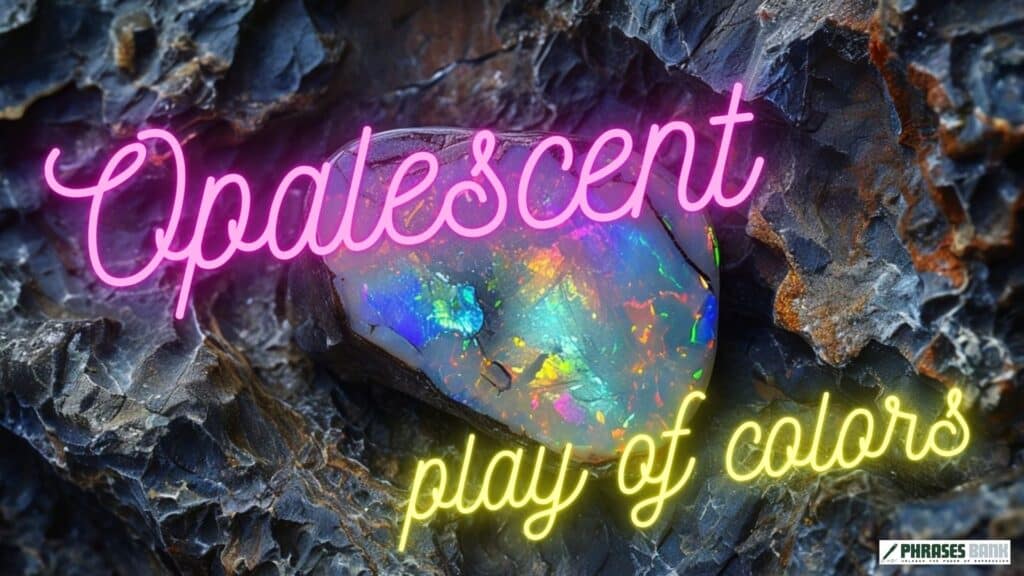
- Opalescent: Having a play of colors like an opal.
- Oceanic: Relating to or characteristic of the ocean.
- Odoriferous: Having a strong smell, especially a pleasant one.
- Orotund: Having a deep, rich voice.
- Obstreperous: Noisy and unruly.
- Oneiric: Relating to dreams or dreaming.
- Osseous: Relating to or consisting of bone.
- Oleaginous: Greasy or oily.
- Ominous: Giving a feeling of danger or evil.
- Opaque: Not transparent or translucent.
- Oscillating: Moving back and forth or up and down.
- Oracular: Relating to or resembling an oracle (a person or object believed to be able to predict the future).
- Oxymoronic: Combining contradictory terms.
- Oviform: Egg-shaped.
- Obfuscating: Making something difficult to understand or clear.
- Oleophobic: Repelling oil.
- Ostentatious: Showy and pretentious.
- Oblique: Not straightforward or direct.
- Orchestral: Relating to or performed by an orchestra.
- Ocular: Relating to the eye.
- Olfactory: Relating to the sense of smell.
- Ornithological: Relating to birds.
- Ouroboric: Representing a serpent eating its own tail, symbolizing eternity.
- Oblong: Rectangular or oval in shape.
- Ocherous: Of a yellowish-brown color.
- Odontogenic: Relating to the development of teeth.
- Oviparous: Producing eggs.
- Oligarchic: Ruled by a few powerful people.
- Onomatopoeic: Forming a word from a sound associated with what it represents.
- Ontological: Relating to the nature of being or existence.
These descriptive words can add depth and specificity to your writing. For instance, describing a gemstone as “opalescent” paints a much more vivid picture than simply calling it “shiny,” while describing a sound as “orotund” provides a more precise description than just “loud.”
O-Adjectives in Action: Real-world Examples
To truly understand the power of O adjectives, let’s look at some examples of how they’re used in various contexts:
Famous Quotes Featuring O-adjectives
- “Be optimistic. It feels better.” – Dalai Lama
- “The most difficult thing is the decision to act, the rest is merely tenacity. The fears are paper tigers. You can do anything you decide to do. You can act to change and control your life; and the procedure, the process is its own reward.” – Amelia Earhart (demonstrating an optimistic outlook)
Literary Excerpts Showcasing O-words
From “1984” by George Orwell:
“It was a bright cold day in April, and the clocks were striking thirteen. Winston Smith, his chin nuzzled into his breast in an effort to escape the vile wind, slipped quickly through the glass doors of Victory Mansions, though not quickly enough to prevent a swirl of gritty dust from entering along with him.”
Here, Orwell uses the adjective “ominous” (implied by the unusual clock striking and the “vile wind”) to set the tone for his dystopian novel.
Headlines and Slogans Powered by O-adjectives
- “Outstanding Performance Leads Team to Victory”
- “New Product Offers Optimal Solution for Busy Professionals”
- “Be Original. Be You.” (Clothing brand slogan)
These examples demonstrate how O adjectives can be used effectively in various forms of communication, from inspirational quotes to literary descriptions and marketing slogans.
Interesting Read: Science words that start with Y
The O-Challenge: Test Your Knowledge
Now that we’ve explored a wide range of O adjectives, let’s put your knowledge to the test with a quick quiz:
- Which O adjective means “all-knowing”?
a) Oblivious
b) Omniscient
c) Obstinate
d) Opulent - What O adjective would you use to describe someone who’s stubbornly resistant to change?
a) Optimistic
b) Ostentatious
c) Obstinate
d) Obliging - Which O adjective describes something that gives off a scent?
a) Ocular
b) Odoriferous
c) Ostentatious
d) Obfuscating - What O adjective would you use to describe a person who’s friendly and sociable?
a) Obstreperous
b) Oblivious
c) Outgoing
d) Obtuse - Which O adjective means “relating to dreams”?
a) Oneiric
b) Oceanic
c) Opaque
d) Ornithological
(Answers: 1-b, 2-c, 3-b, 4-c, 5-a)
How did you do? This quiz demonstrates the wide range of meanings and applications of O adjectives, from describing personality traits to sensory experiences and abstract concepts.
Mastering O-Adjectives: Tips and Tricks
To truly master O adjectives nd incorporate them effectively into your vocabulary, consider these tips:
- Context is key: Always consider the context when choosing an O adjective. “Ostentatious” might be perfect for describing a lavish party, but it could be offensive if used to describe someone’s personal style.
- Practice makes perfect: Try to use a new O adjective each day in your writing or conversation. This will help cement these words in your active vocabulary.
- Explore etymology: Understanding the origins of words can help you remember their meanings. For example, “omniscient” comes from the Latin “omni” (all) and “sciens” (knowing).
- Use mnemonics: Create memory aids for tricky words. For instance, remember “opalescent” by thinking “opals are iridescent.”
- Avoid overuse: While O adjectives can add flair to your language, using too many in one piece of writing can be distracting. Use them judiciously for maximum impact.
Conclusion: Embracing the O-pportunities
As we’ve seen, O adjectives offer a wealth of opportunities to enhance your language skills and express yourself more vividly. From optimistic words that brighten our outlook to precise descriptors that paint detailed pictures, these words are invaluable tools in the art of communication.
Remember, language is always evolving, and new O adjectives may emerge over time. Stay curious, keep learning, and don’t be afraid to be original in your use of language. After all, that’s what makes communication truly outstanding!
Bonus: O-Adjective Cheat Sheet
To help you quickly reference and use O adjectives in your daily life, here’s a categorized cheat sheet of all the O adjectives we’ve covered:
| Positive O-Adjectives | Negative O-Adjectives | Descriptive O-Adjectives | Character Traits |
| Optimistic | Obnoxious | Opalescent | Open-minded |
| Outstanding | Obstinate | Oceanic | Observant |
| Overjoyed | Offensive | Odoriferous | Outgoing |
| Opportune | Oppressive | Orotund | Organized |
| Open-minded | Odious | Obstreperous | Original |
Feel free to print this out or keep it handy on your device for quick reference. Remember, the key to mastering these words is using them regularly in your writing and speech. Happy word exploring!
Here are 3 FAQs that are relevant to the article and cover information not shared in the main content:
Q1: How can I effectively use O adjectives in creative writing?
A: To effectively use O adjectives in creative writing:
- Use them for sensory descriptions: O adjectives like “odoriferous” or “opalescent” can add vivid sensory details to your writing.
- Create unique character traits: Combine O adjectives with other words to create distinctive character traits, such as “oddly optimistic” or “overtly observant.”
- Use them for contrast: Pair O adjectives with their opposites for dramatic effect, like “outwardly obedient but inwardly obstinate.”
- Employ them in metaphors: Use O adjectives to create powerful metaphors, such as “Her smile was an oasis in the oppressive desert of corporate life.”
- Avoid overuse: While O adjectives can enhance your writing, use them sparingly to maintain balance and readability.
Q2: Are there any O adjectives that are commonly misused or confused?
A: Yes, several O adjectives are often misused or confused:
- Obsessive vs. Compulsive: “Obsessive” refers to persistent thoughts, while “compulsive” relates to behaviors.
- Obtuse vs. Abstruse: “Obtuse” means slow to understand, while “abstruse” means difficult to comprehend.
- Ostentatious vs. Pretentious: “Ostentatious” refers to showy displays, while “pretentious” implies an exaggerated sense of importance.
- Opaque vs. Obscure: “Opaque” means not transparent physically, while “obscure” can mean unclear or not well-known.
- Officious vs. Official: “Officious” means interfering and bossy, while “official” means authorized or sanctioned.
Understanding these distinctions can help you use these words more accurately in your communication.
Q3: How can learning O adjectives benefit English language learners?
A: Learning O adjectives can benefit English language learners in several ways:
- Vocabulary expansion: It introduces learners to a diverse set of words, many of which are not commonly taught in basic English courses.
- Improved pronunciation: Practicing O adjectives helps learners become more comfortable with the ‘O’ sound in English, which can be challenging for speakers of some languages.
- Cultural understanding: Many O adjectives, like “Orwellian” or “Olympian,” have cultural or historical significance, helping learners gain deeper insights into English-speaking cultures.
- Advanced expression: Mastering O adjectives allows learners to express more nuanced ideas and emotions, enhancing their overall communication skills.
- Preparation for academic English: Many O adjectives are used in academic or professional contexts, making them valuable for learners pursuing higher education or careers in English-speaking environments.
By focusing on this specific subset of adjectives, learners can efficiently expand their vocabulary while gaining a deeper understanding of English language nuances.
Explore: What does WTV Mean and its uses in Social Media

Nat Webb is a dedicated writer at PhrasesBank, specializing in idioms, metaphors, and scientific vocabulary. With a flair for breaking down intricate language concepts, Nat Webb crafts informative and accessible content that empowers readers to enhance their language skills and expand their knowledge. Through engaging articles and guides, Nat Webb makes learning language both enjoyable and practical.

